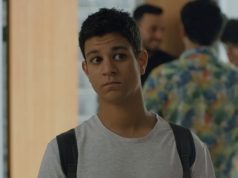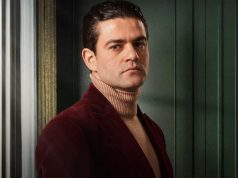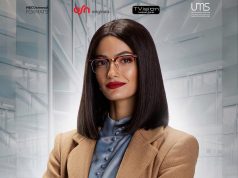Anissa Hassouna
An Admirable Career & A Powerful Role Model
By Francesca Sullivan
Stepping forward from behind her desk at the hub of the Magdi Yacoub Foundation in Zamalek, Anissa Hassouna exudes a powerful combination of warmth and energy. This is a woman whose lifetime achievements make those of the most ambitious men look tame. But then, as Hassouna points out, women are accustomed to taking on many roles in life. “Not women, but super-women,” she points out when describing the lives of those with full-time careers and families to take care of. Running the Magdi Yacoub Foundation is just the latest turn in an illustrious career spanning decades.
What has been the secret of her success?
After obtaining a Bachelor’s Degree in Economics and Political Science from Cairo University, Hassouna worked as a diplomatic attaché at the Egyptian Foreign Ministry, followed by the Arab Economic Unity Council, the League of Arab States. Moving into the banking sector, she became Assistant General Manager at the Misr Iran Development Bank, then Director General of Egypt’s International Economic Forum. She is a lecturer at the Diplomatic Institute of the Egyptian Ministry of Foreign Affairs and has lectured at the Banking Institute of the Central Bank of Egypt.
Named on the annual list of the renowned Arabian Business & CEO Middle East magazine as one of the “World’s 100 Most Powerful Arab Women” for 2014 , Hassouna was the first woman to be elected on the Board of the Egyptian Council for Foreign Affairs where she held the position of Secretary General and currently is the Treasurer. She is a member of the Executive Council of the “Pugwash Conferences on Science and World Affairs” which won the Nobel Prize in 1995. She is a member of both the Consultative Boards of the “Arab Thought Foundation”, Beirut, Lebanon and the “Arab Forum for Alternatives” Cairo, Egypt.
She is the Founder and Chairperson of the “Enlightened Egypt Foundation” which promotes the values of citizenship and gender equal rights, a founding member of the “Think Tank for Arab Women”, the “Forum for Arab Citizenship in Transition Democracies”, the “Front for Protecting the Freedom of Creativity & Expression” the “Arab International Women’s Forum” in London, UK , and the American Chamber of Commerce in Cairo.
Hassouna writes regularly on public affairs and her last publication was her contribution to the book, In the Wake of the Arab Spring – Conflict and Cooperation in the Middle East, edited by Sverre Lodgaard and published Scandinavian Academic Press, Norway, in September 2013.
Although she has always been involved in humanitarian organizations, running the Foundation has represented a clear step into a very community-orientated field, and one that she is relishing greatly.
What, or who, inspired you to become so involved in helping the community?
I am deeply influenced by my family. My father was a former Minister of Justice, and was responsible for abolishing the Obedience Law in the late 1960’s, a law which allowed husbands control over their wives, denied women the right to divorce and even made it legal for the police to enforce these controls. I was brought up in an environment that respects women’s rights. My mother was a pediatrician and worked all her life. My three sisters and I were educated to be independent minded. We all developed our own opinions, which were in turn respected by our parents.
Have there been life changing or pivotal experiences along the way that have kept your passion for what you do?
It goes back to my upbringing that taught me never to do anything I’m not passionate about and when committed to a job to do it to the best I of my ability. I began my career in the diplomatic service, and then moved into banking, but I’d always been interested in the idea of serving the community, and that became a reality when I was offered the job at the Magdi Yacoub Foundation. That in itself was a pivotal experience.
How did you come to work for the Foundation?
I was nominated for an interview where I was inspired by Sir Magdi Yacoub’s vision of what he wanted to achieve. At the interview he asked me whether I had any medical experience and I had to tell him none – only as a patient! I’m definitely privileged to work under the leadership of a board of trustees that provides insights and strategic policies to achieve the mission of establishing a “centre of excellence” that does not only provide free medical services at international standards but as well is keen to train a second line and give due attention to scientific research. Our first project has been Aswan Heart Center, which we hope will be replicated in the future elsewhere in Egypt.
Why Aswan?
Sir Magdi has a special connection with Aswan, where he attended school for a time as a child, and he is fond of the people there. He also wanted to get out of the Cairo/Alexandria centralization syndrome. It was challenging. People said things like, it’s too remote, no doctors will want to work so far away. Of course we had the advantage of Sir Magdi’s reputation to attract good people to the project, but the support of the public, as well as the business community, has been essential. One year into our launch the revolution happened, but we still succeeded because the people felt that they are stakeholders in the project’s future; they matter. Now, four years on, we have more than doubled our capacity, as well as provided a social and economic spill-over with the creation of several hundred jobs, thus helping raise the local standard of living.
What are the challenges you have faced as a woman working in high profile positions within this culture?
The same challenges most women in the work place face, in Egypt but also around the world. As women we are always having to prove ourselves in a way men are not expected to. We are put on the defensive. We have brains equal to men and should be judged on our qualifications and on an equal basis. But here the cultural mind-set is that women have ‘needs’ rather than ‘rights’. We have to attend to our family obligations, children, social life – in fact women are really super- human beings!
How have you personally balanced motherhood with a career?
I have always been a working woman, but I suppose as my daughters have grown up I have adjusted my workload accordingly. Most charity and community work is extra, done outside of office hours, so I was less able to do it when they were small. But once they were getting through secondary school I stepped up my volunteer work, took on more engagements and so on, and once they graduated from university that increased even further. Needless to say that through this I had the unlimited support of my family and dear husband.
What advice would you give to young people wanting to start out in the field of community work?
First of all, find something you feel passionate about. Then get on and work at it! When you believe in the mission it enables you to be creative in your approach, think outside the box and find ways to achieve your goals. Also your belief will inspire others, and that enables you to build a team. When you do that, remember that equality and respect for others is essential. Here at the Foundation everyone has a valued role and the liberty to put their ideas on the table. Plus we are gender sensitive, with equal opportunities for female employees.
You were recently given an award as being among the 100 Most Powerful Arab Women for 2014. What does that mean to you?
The award is given in recognition of the efforts sincerely done by women who are making a positive difference and serving their communities in various fields of activities. Women are usually the agents of change in societies whether socially, culturally, economically or politically. Such an award definitely motivates me to do more and is so rewarding and fulfilling, since it comes in appreciation of the hard work done over the years. I willingly share it with my dear family and all those who have loved and supported me along the way.
Quick Fire-Round with Anissa Hassouna
What was the last book you read?
1919 by Ahmed Mourad, Automobile Club d’Egypte by Alaa Al Aswany and Bab El Khourog by Ezz El Din Shoukry.
The last movie you saw?
The last movie I wanted to see when I was last travelling was Noah, . I saw Mohamed Khan’s Factory Girl, which I loved.
What is your favourite destination, in Egypt and abroad?
In Egypt, Sharm el Sheikh and Aswan. Abroad it would be England, where I spent time when I was younger.
If you could meet anyone alive or dead who would it be?
Nelson Mandela and Mahatma Ghandi. I would have loved to talk to them about their rich and outstanding experiences based on patience and tolerance. So many lessons to be learned there.
What is your favourite food?
Ice-cream.
Favourite app?
Angry Birds
What is the secret of happiness for you?
The satisfaction with the share that life has given me, the love of my family and their success in their lives, the warm relationship with my friends and the role I can play in helping others.
The Magdi Yacoub Foundation:
How to Donate
There are five different ways to donate:
1) Through Magdi Yacoub Foundation accounts at all Egyptian banks
2) Via the website: “www.myf-egypt.org” www.myf-egypt.org
3) Call 19731 for cash collection
4) Through the branches of the Post Office Authority
5) Through ‘fawry’ services
Magdi Yacoub Heart Foundation depends upon the financial generosity of individuals and institutions to carry out its mission and fulfill its objectives.
You can choose to donate by either of the following means OR donate online:
MYF Bank Accounts at:
Commercial International Bank EGP 0790109276
Commercial International Bank USD 0790358113
Banque Misr 15500100106952
National Societe General Bank EGP 2031181768762
National Societe General Bank USD 2031198139452
Arab African International Bank 7773910






Comments are closed.